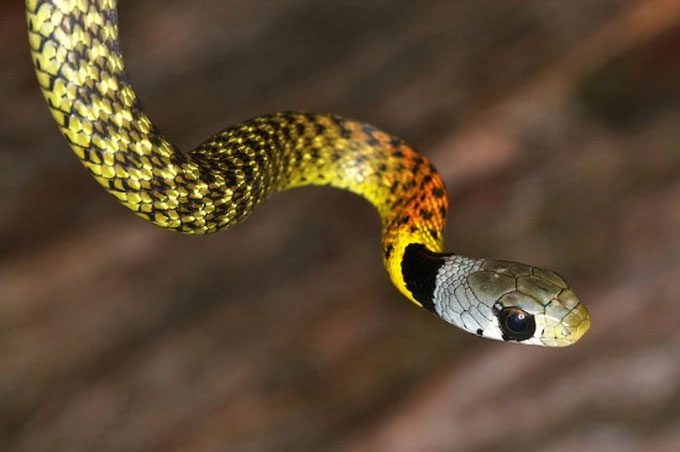The rising temperatures are bringing unpredictable dangers from this reptile species.
According to a new study, while there are no shortages of threats and dangers caused by climate change, we now have another item to add to the list: snake bites.
Specifically, warmer weather leads to increased activity in venomous snakes, making them more likely to bite humans. The study was conducted in Georgia, USA, which is home to a total of 17 species of venomous snakes. The findings suggest that for every 1°C increase in temperature, the rate of snake bites rises by nearly 6%.

Venomous snakes are more active in warmer weather. (Illustrative image: Getty).
Explaining this phenomenon, environmental scientist Noah Scovronick from Emory University noted that snakes have a strong adaptation to seasonal weather changes.
They easily enter a state similar to hibernation when the weather turns cold. However, once the cold passes, they are ready to abandon this habit and reproduce vigorously.
Scovronick and his research team examined a total of 3,908 hospital admissions related to venomous snake bites from 2014 to 2020. These admissions were cross-referenced with daily weather data, including parameters such as temperature and rainfall.
They found that while summer had the highest total number of snake bites, spring saw more dangerous bites occurring.

Snake bites can lead to serious consequences. (Photo: AHO).
The researchers suggest that higher summer temperatures may cause snakes to become sluggish, making them less dangerous. However, once the snake’s venom comes into contact with the body, serious health issues can arise.
According to estimates from the World Health Organization (WHO), snake bites result in over 5 million emergency cases and 138,000 deaths each year. Venom from snakes can cause severe health problems, leading to amputations and leaving many with permanent disabilities.
From another perspective, herpetologist Lawrence Wilson believes that snakes and humans can coexist, even with venomous species. “To achieve this, we need to respect and understand their habitat and needs,” Wilson stated.
“The most important factor in minimizing encounters with snakes is education: Understand the preferred habitats of snakes and learn how to behave when faced with them.“




















































